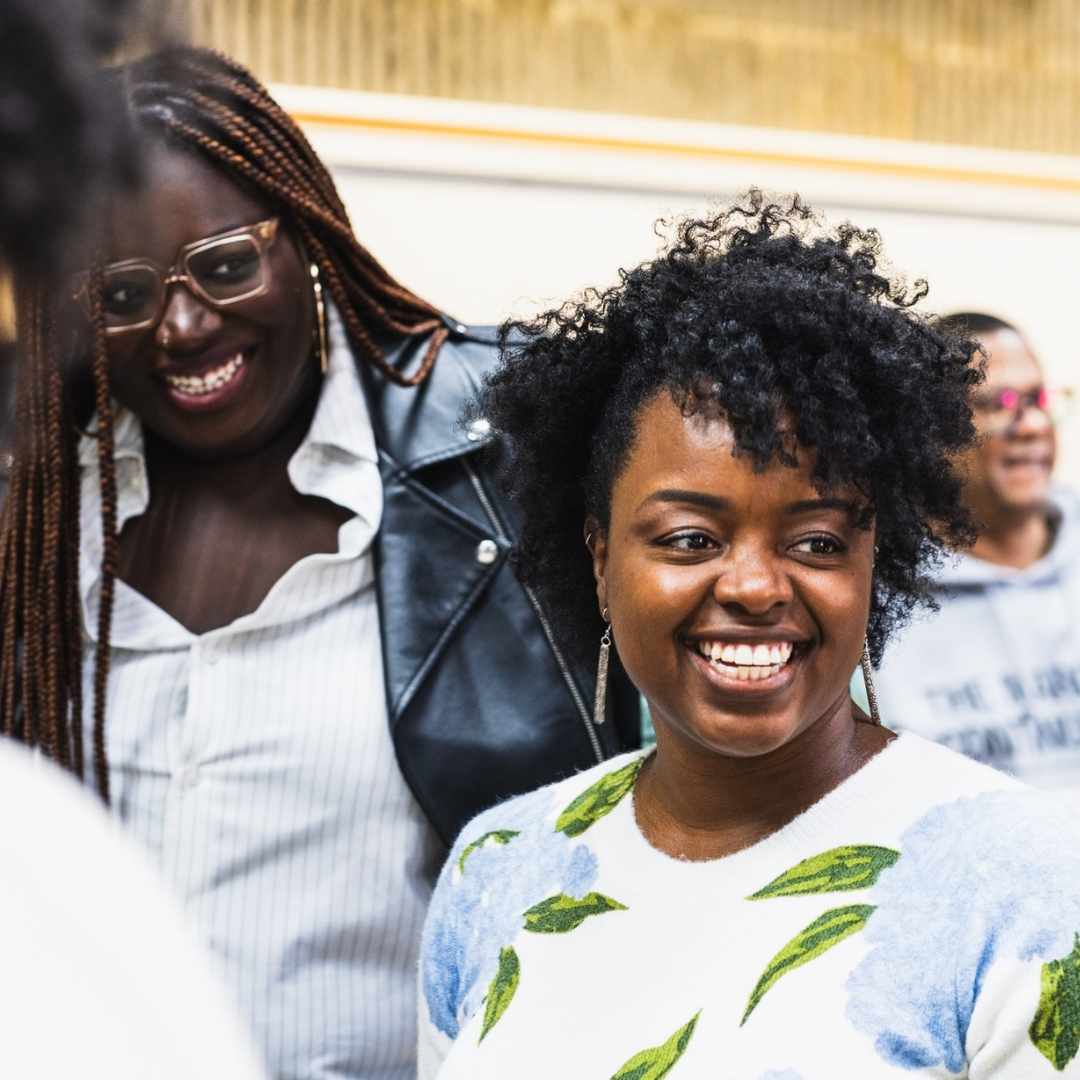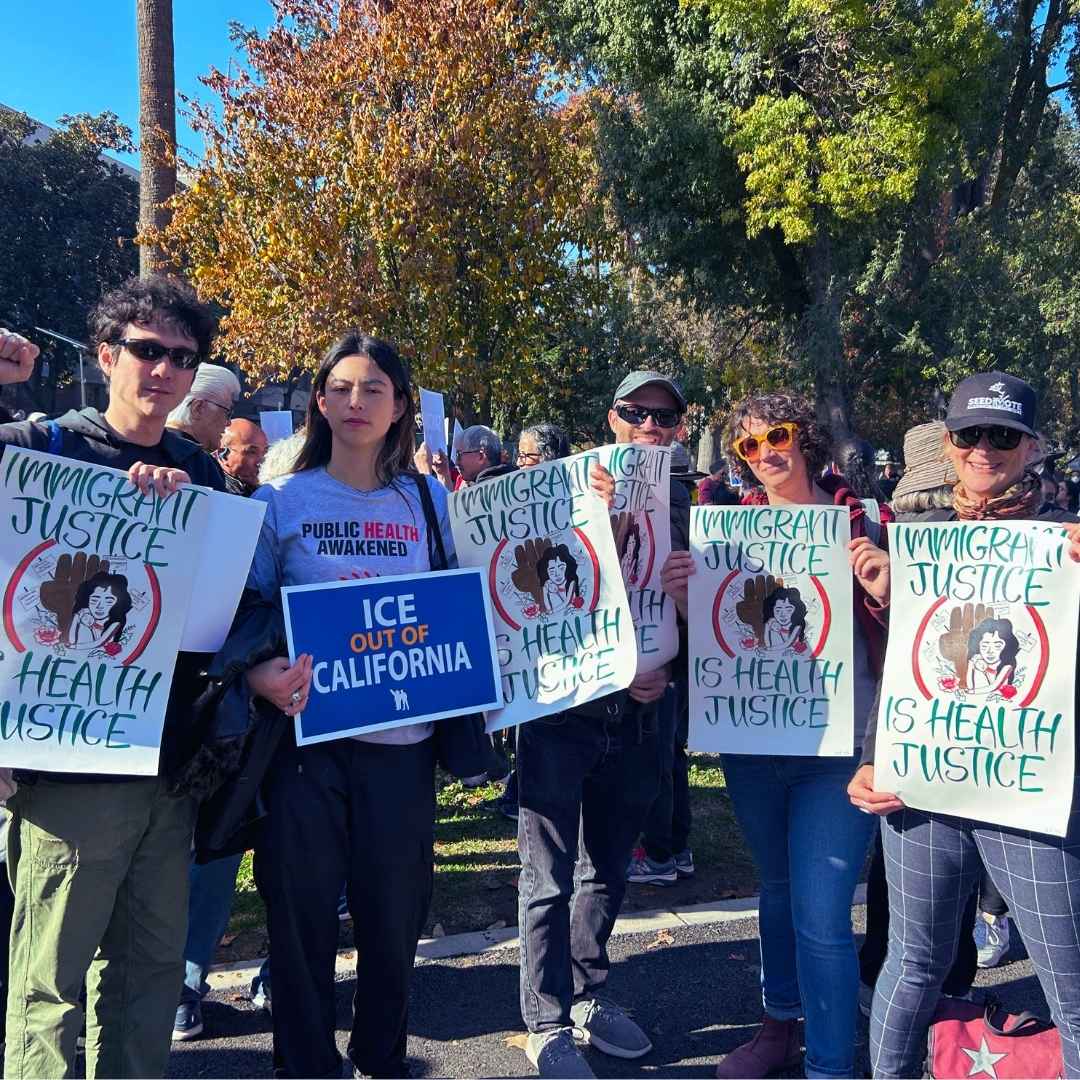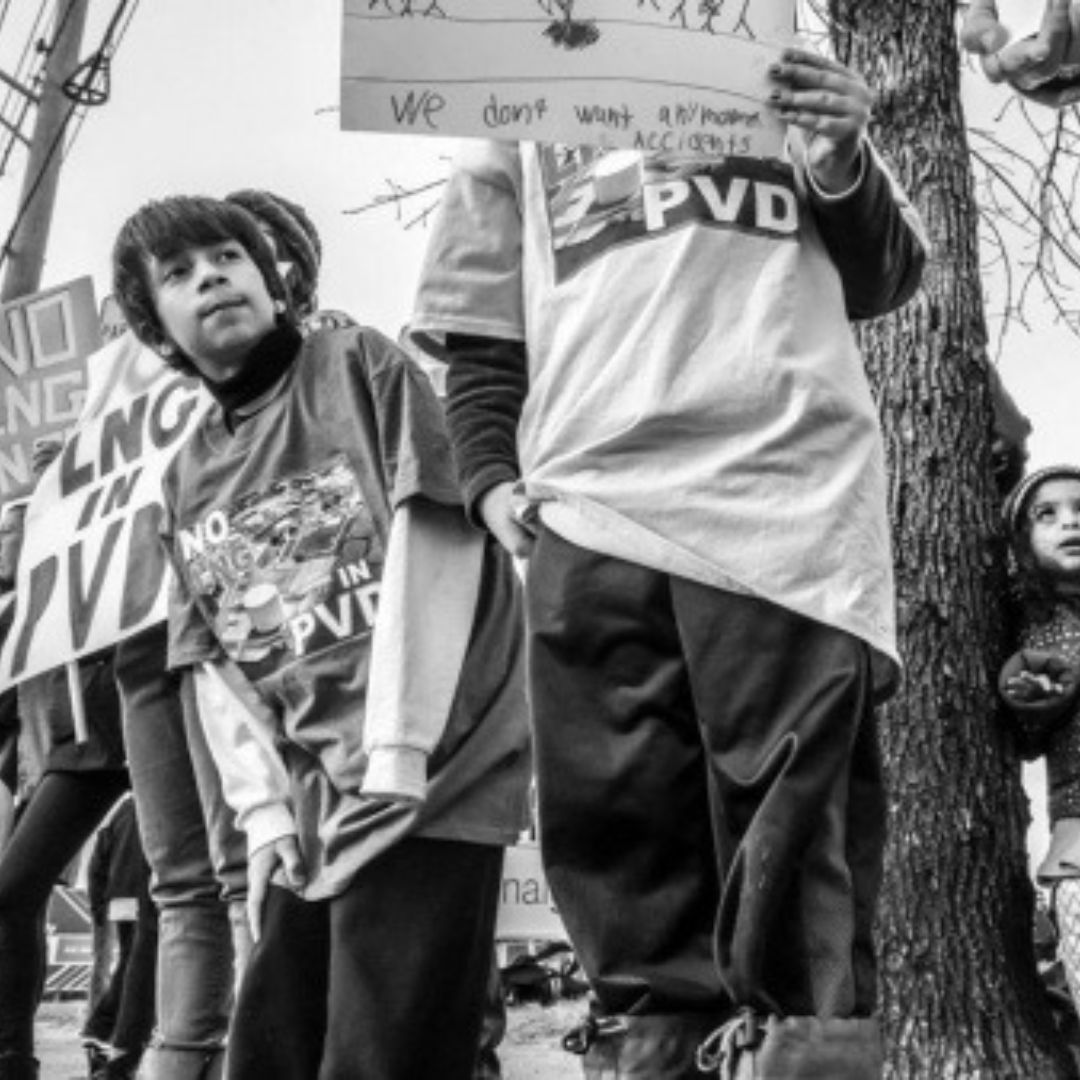Power-building Partnerships for Health
Cultivating powerful partnerships between local health departments and community power-building organizations

Social justice movements and public health belong together.
Power-building Partnerships for Health (PPH) is a 10-month cohort program that deepens relationships, trust, and structures for local health departments and community power-building organizations to take collective inside/outside action toward health equity and racial justice.
PPH supports health departments to leverage their power and take action to contribute to community power-building priorities, and helps community power-building organizations use their power to advance stronger public health policies and practices.
We designed PPH to model what co-governance can look like — where health departments and grassroots groups work together to advance community power-building goals and campaigns, and take strategic action to make government more accountable to communities. Since 2018, we’ve graduated 13 pairs of health department and community organizer collaborations across 3 cohorts and 6 states.
PPH provides participants with:
- Support with navigating power dynamics: Provides a confidential and supportive community to help navigate risky, political, or complex power dynamics
- $25,000 in flexible funding for community power-building: Funds can be used to support community organizers’ time and participation
- Peer learning: Ten virtual sessions and 1-2 in-person gatherings for shared learning, relationship-centered networking, and leadership development
- Site-specific coaching and technical assistance: Monthly site meetings and up to 20 hours of direct TA support to advance local health equity and power-building work
- Dedicated time for relationship-building: We “move at the speed of trust” and emphasize building trust within organizational teams and partnerships

PPH provides participants with:
- American University
- Boston University School of Public Health
- Capella University
- Charles R. Drew University of Medicine and Science
- City University of New York
- Columbia University Mailman School of Public Health
- Colorado School of Public Health
- Drexel University
- Emory University Rollins School of Public Health
- George Washington University
- Georgia State University
- Harvard University T.H. Chan School of Public Health
- Howard University
- Iowa State University
- Johns Hopkins University Bloomberg School of Public Health
- Northeastern University
- Northwestern University
- Oregon Health and Science University and Portland State University School of Public Health
- Rutgers University
- San Diego State University School of Public Health
- San Francisco State University
- San Jose State University
- Seattle University
- Tufts University
- Tulane University School of Public Health and Tropical Medicine
- University of California Berkeley School of Public Health
- University of California Davis
- University of California Los Angeles Fielding School of Public Health
- University of North Carolina at Chapel Hill Gillings School of Global Public Health
- University of Central Arkansas
- University of Illinois Chicago School of Public Health
- University of Iowa College of Public Health
- University of Maryland School of Public Health
- University of Michigan School of Public Health
- Wayne State University
- University of Minnesota School of Public Health
- University of Minnesota Medical School
- University of Oxford
- University of Pittsburgh School of Public Health
- University of South Florida College of Public Health
- University of Southern California
- University of Victoria
- University of Washington School of Public Health
- University of Wisconsin Madison
- University of Texas Health Science Center at Houston School of Public Health
PPH provides participants with:
- Support with navigating power dynamics: Provides a confidential and supportive community to help navigate risky, political, or complex power dynamics
- $25,000 in flexible funding for community power-building: Funds can be used to support community organizers’ time and participation
- Peer learning: Ten virtual sessions and 1-2 in-person gatherings for shared learning, relationship-centered networking, and leadership development
- Site-specific coaching and technical assistance: Monthly site meetings and up to 20 hours of direct TA support to advance local health equity and power-building work
- Dedicated time for relationship-building: We “move at the speed of trust” and emphasize building trust within organizational teams and partnerships
From our partners
“PPH was especially valuable because it created dedicated time and space for our health department team to build relationships and trust with our local power-building organization partner. Our time together in the PPH cohort laid the foundation for our organizations to continue to plan and strategize on how to advance public health goals together.”
Jeanie Donovan
Deputy Director, Population Health & Disease Prevention, New Orleans Health Department
“Mi participación en el programa de PPH fue una de las mejores experiencias que tuve aprendiendo como mejorar mi trabajo como Organizadora Comunitaria colaborando con una agencia local como el Departamento de Salud. Me dio la oportunidad de conocer otros líderes de diferentes comunidades y aprender de cada uno de ellos.”
Ana Ramos
Organizadora Comunitaria, CleanAirNow
Bridges Over Troubled Water: Assessing the national bridging landscape of partnerships between health departments and community power-building organizations
This report is an assessment of the national landscape of bridging partnerships – collaborations between governmental public health departments and community power-building organizations.
















